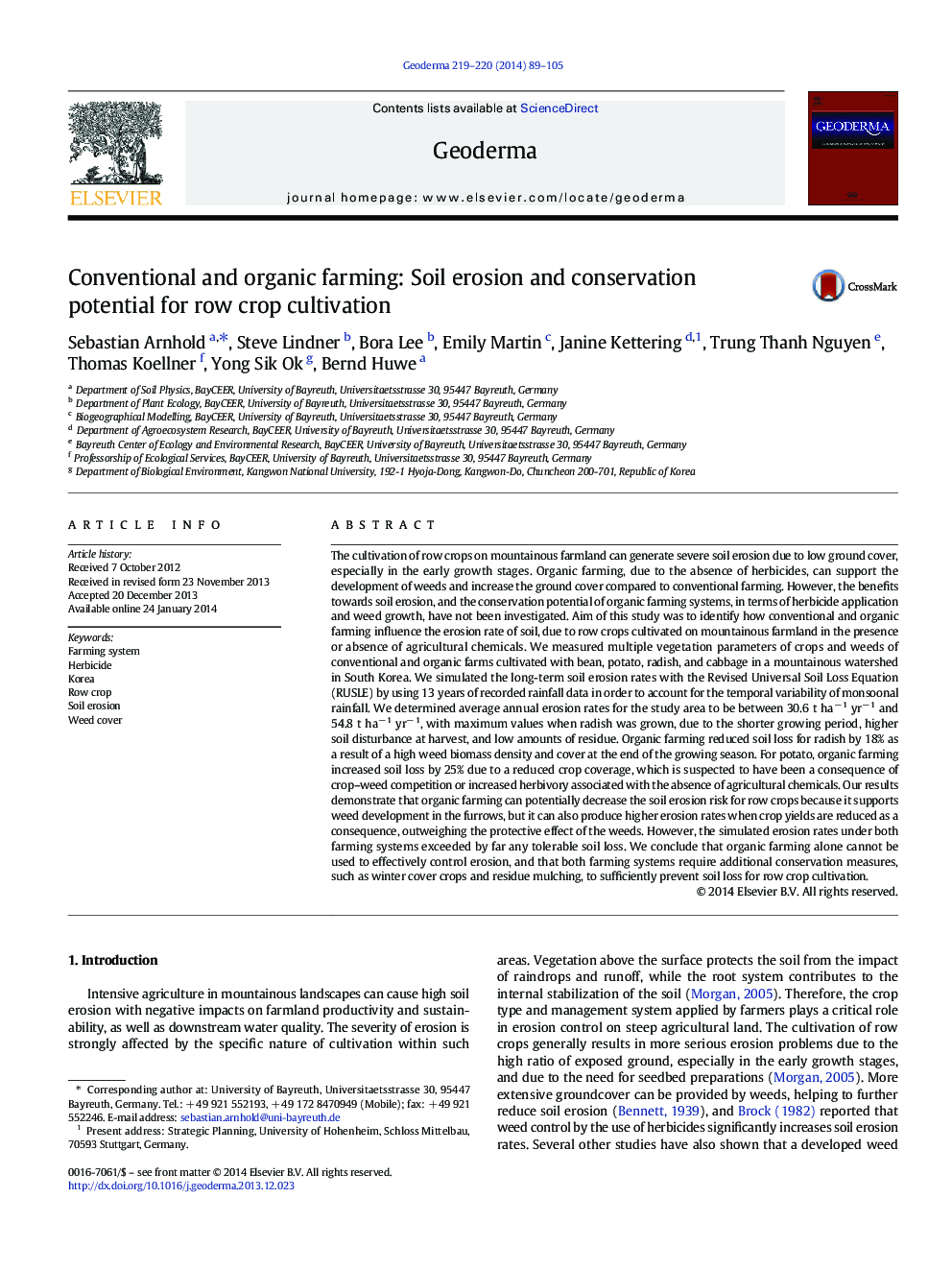| کد مقاله | کد نشریه | سال انتشار | مقاله انگلیسی | نسخه تمام متن |
|---|---|---|---|---|
| 4573376 | 1629475 | 2014 | 17 صفحه PDF | دانلود رایگان |
• Organic farming can reduce erosion risk for row crops due to high weed coverage.
• Decreasing crop yield can increase erosion rate for organic farming.
• Organic farming alone does not provide sufficient soil protection for row crops.
The cultivation of row crops on mountainous farmland can generate severe soil erosion due to low ground cover, especially in the early growth stages. Organic farming, due to the absence of herbicides, can support the development of weeds and increase the ground cover compared to conventional farming. However, the benefits towards soil erosion, and the conservation potential of organic farming systems, in terms of herbicide application and weed growth, have not been investigated. Aim of this study was to identify how conventional and organic farming influence the erosion rate of soil, due to row crops cultivated on mountainous farmland in the presence or absence of agricultural chemicals. We measured multiple vegetation parameters of crops and weeds of conventional and organic farms cultivated with bean, potato, radish, and cabbage in a mountainous watershed in South Korea. We simulated the long-term soil erosion rates with the Revised Universal Soil Loss Equation (RUSLE) by using 13 years of recorded rainfall data in order to account for the temporal variability of monsoonal rainfall. We determined average annual erosion rates for the study area to be between 30.6 t ha− 1 yr− 1 and 54.8 t ha− 1 yr− 1, with maximum values when radish was grown, due to the shorter growing period, higher soil disturbance at harvest, and low amounts of residue. Organic farming reduced soil loss for radish by 18% as a result of a high weed biomass density and cover at the end of the growing season. For potato, organic farming increased soil loss by 25% due to a reduced crop coverage, which is suspected to have been a consequence of crop–weed competition or increased herbivory associated with the absence of agricultural chemicals. Our results demonstrate that organic farming can potentially decrease the soil erosion risk for row crops because it supports weed development in the furrows, but it can also produce higher erosion rates when crop yields are reduced as a consequence, outweighing the protective effect of the weeds. However, the simulated erosion rates under both farming systems exceeded by far any tolerable soil loss. We conclude that organic farming alone cannot be used to effectively control erosion, and that both farming systems require additional conservation measures, such as winter cover crops and residue mulching, to sufficiently prevent soil loss for row crop cultivation.
Journal: Geoderma - Volumes 219–220, May 2014, Pages 89–105
